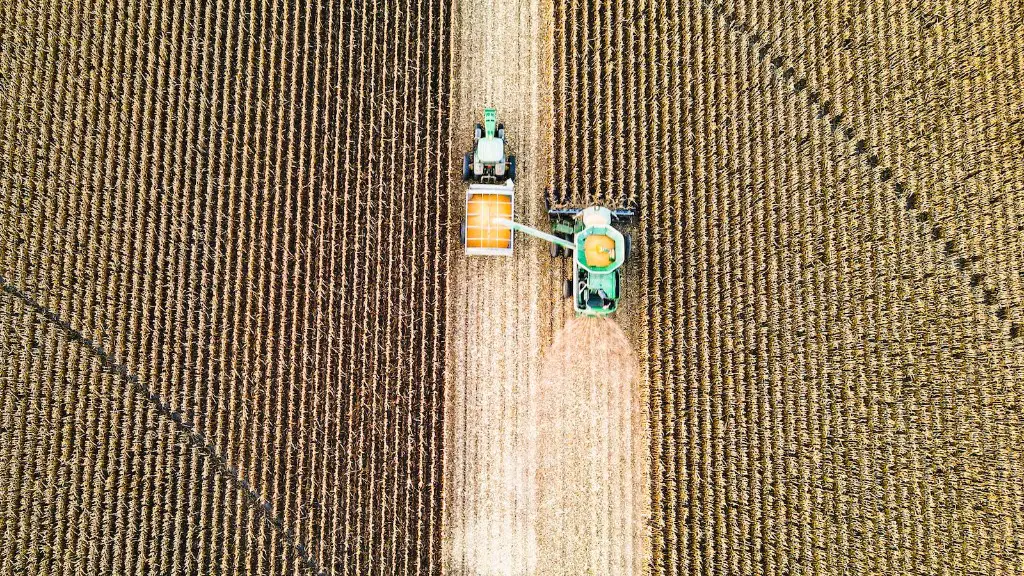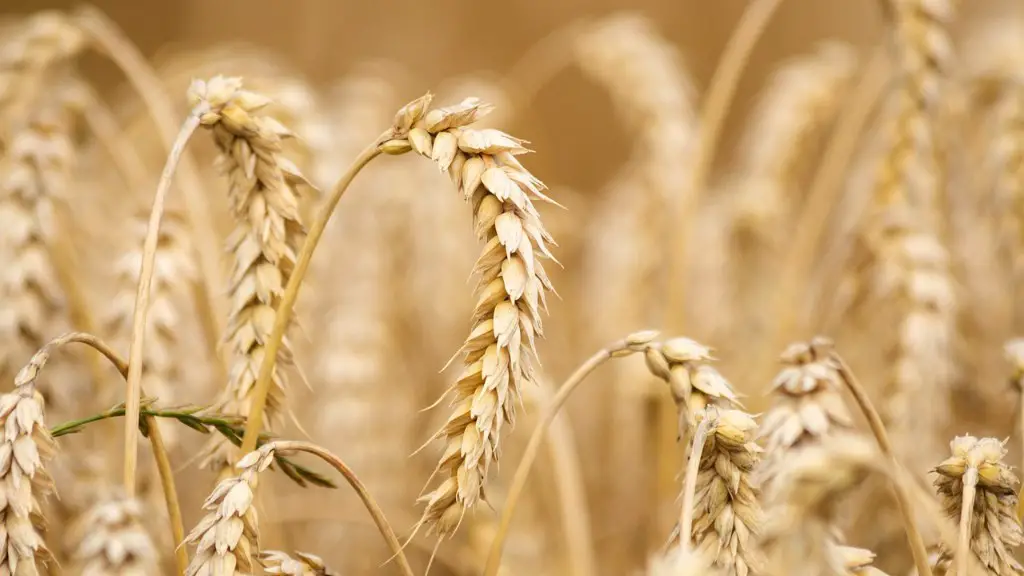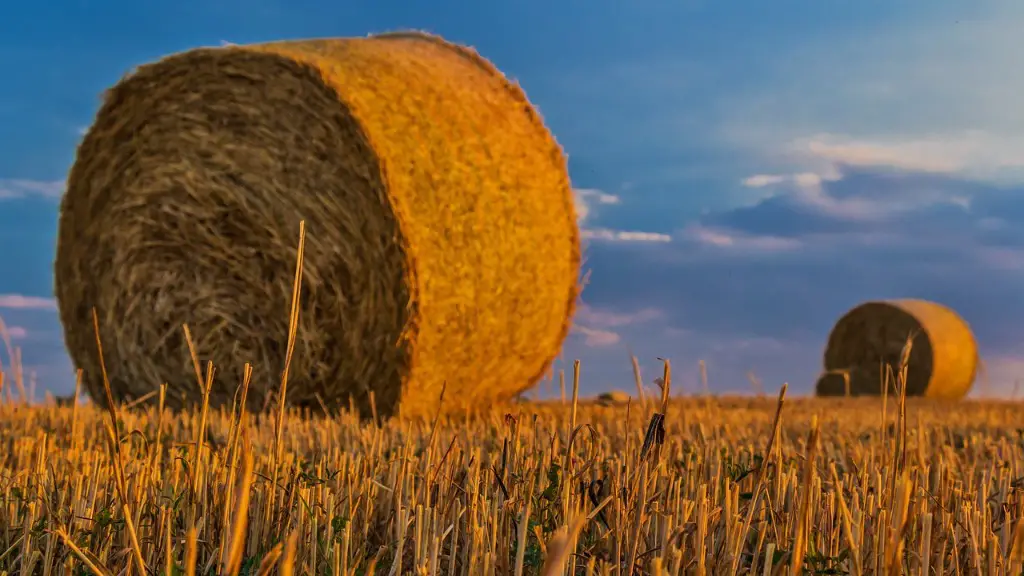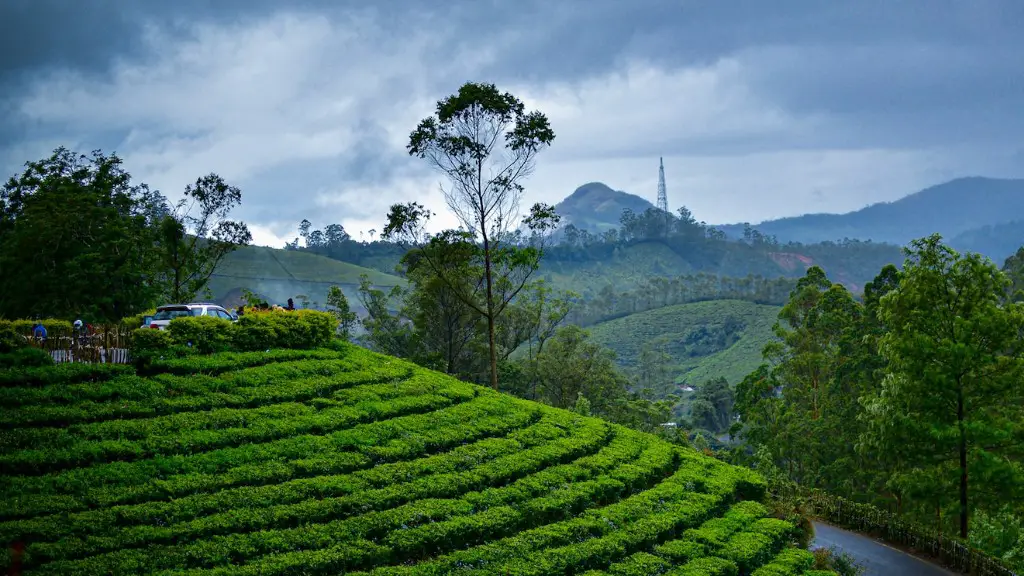Agriculture is a science because it is the application of scientific principles to the production of plants and animals. agriculture is a science because it is the application of scientific principles to the management of natural resources.
Science is the study of the natural world through observation and experimentation. Agriculture is the science of growing plants and animals for food, fiber, and fuel. It includes the study of the soil, water, climate, and other factors that affect plant and animal growth.
Is agriculture considered a science?
Agriculture science is a broad field that encompasses many different aspects of food production and animal husbandry. It includes everything from soil science and crop cultivation to animal processing and food safety. This definition is similar to that of agriculture, but with one major difference: agriculture is the practice and act of planting crops and raising livestock, while agriculture science is the study of these practices.
GPS systems have revolutionized the agriculture industry by allowing farmers to more accurately target their crops for watering, fertilization, and herbicide/pesticide application. This has resulted in increased yields and decreased inputs, which has saved farmers money and improved the sustainability of their operations.
Does agriculture fall under science
Agriculture is an important part of our economy and our way of life. It is the art and science of cultivating the soil, growing crops and raising livestock. Agriculture is a vital part of our food system and provides us with many of the things we need to live.
Agriculture science refers to the processes of cultivating desirable plants and breeding and raising livestock for commercial purposes. The practice of agriculture is usually referred to as farming. Agriculture science includes the study of soil science, crop science, horticulture, animal science, and agricultural engineering.
Why is agriculture defined as science and art?
Agriculture is the science and art of cultivating plants and live stocks. It is the practice of growing crops or raising animals for the benefit of humanity. Agriculture can be defined as the art and science of cultivating soil, producing crops and raising of animals for the benefit of humanity.
Agriculture is one of the most important sectors of the economy. It is the main source of raw materials for industries and the main source of food for consumers. It plays a big role in a nation’s revenue and can provide employment for a large number of people. It is also crucial to a country’s development. In addition, agriculture can help heal the environment and can go hand-in-hand with war.
What is agriculture short answer 8 science?
Agriculture is the backbone of our economy and it is the primary source of livelihood for more than half of our population. India is an agrarian economy and agriculture forms the foundation of our society. The importance of agriculture in our country can be gauged from the fact that it contributes to more than 15% of our GDP and employs more than 60% of our workforce. Agriculture is not just about growing crops and rearing livestock, it is also about ensuring food security for our nation. In recent years, the government has taken several measures to modernize and mechanize agriculture in order to boost productivity and yield. However, there are still many challenges that need to be addressed in order to make agriculture truly sustainable and efficient.
Agriculture is the backbone of Nigeria’s economy, accounting for about 24% of the country’s GDP and employing about 60% of the workforce. The sector is a key driver of economic growth and poverty reduction, and plays a vital role in providing food security and improving nutrition.
Despite its importance, agricultural productivity in Nigeria remains low, due to a number of factors including poor infrastructure, lack of access to financing, and low levels of technology and skills. In addition, the sector is often impacted by climate shocks such as floods and droughts, which can damage crops and reduce yields.
There is thus a need for greater investment in the agricultural sector in order to boost productivity and make the sector more resilient to shocks. This includes investments in infrastructure, such as irrigation and storage facilities, as well as in research and development to develop more climate-resistant and productive crop varieties. In addition, it is important to provide farmers with access to financial services and education and training on good agricultural practices.
What are the main benefits of agriculture
It is clear that without agriculture, humans would not be able to survive. The production of food, shelter, and clothing all depend on agriculture for their raw materials. Crops for food, silk for cloth, and wood for shelter all come from agriculture. Without agriculture, humans would be unable to meet their basic needs for survival.
Agriculture plays a vital role in society, providing food and other products while supporting livelihoods and economies. The sector provides employment opportunity, supports small businesses and build strong local economies through trade. Agriculture also positively impacts the environment by providing habitat and green space.
What is agriculture one word answer?
Agriculture is vital for the survival of humans and the planet. Agriculture is the process of growing crops and raising livestock. Agriculture is important for the economy, for food security, and for the environment.
Agriculture is the science, art, or occupation concerned with cultivating land, raising crops, and feeding, breeding, and raising livestock. Agriculture is the primary source of food and fiber for humans and is also a significant economic activity.
What is agriculture explain in 100 words
Agriculture has been an integral part of human society for millennia. The history of agriculture began thousands of years ago, and it has since played a pivotal role in the development of civilization. Agriculture allowed for the domestication of plants and animals, which in turn led to the formation of settlements and the rise of cities. Today, agriculture continues to be a vital part of the global economy, providing food, fiber, and fuel for billions of people around the world.
Agriculture education is important in public schools for a number of reasons. First, students learn ways to efficiently feed a burgeoning population. With the world population projected to reach 9 billion by 2050, there is a need for more efficient food production and distribution. Agriculture education can help students understand these issues and ways to address them. Second, students gain a better understanding of food production and distribution. Through agriculture education, students can learn about the entire food system, from farm to table. This knowledge can help them make informed choices about the food they eat and the impact their choices have on the environment and local economy.
How does agriculture reduce poverty?
The very poorest people primarily benefit from agricultural growth through increased demand for their labour. Agricultural growth increases the probability of obtaining employment, and it may increase the salary level, thereby increasing the income that can be accrued from selling labour. This is especially beneficial for people living in rural areas, where often the only source of employment is through agriculture. By increasing the demand for labour, agricultural growth can help to reduce poverty and improve the quality of life for the poorest people in society.
Agriculture is the main source of raw materials for many industries, including cotton and jute fabric, sugar, tobacco, and edible and non-edible oils. Other industries that rely heavily on agriculture for their raw materials include fruit and vegetable processing and rice husking.
Conclusion
The science of agriculture is the study of how to improve the productivity of crops and livestock. It includes the study of the physical and chemical properties of soils, plants, and animals; the effects of environmental factors on crop and livestock production; and the design and management of agricultural systems.
Agriculture is a science because it involves the application of knowledge and skills to produce crops and livestock. It also involves the use of tools and technology to manage resources and environment.





